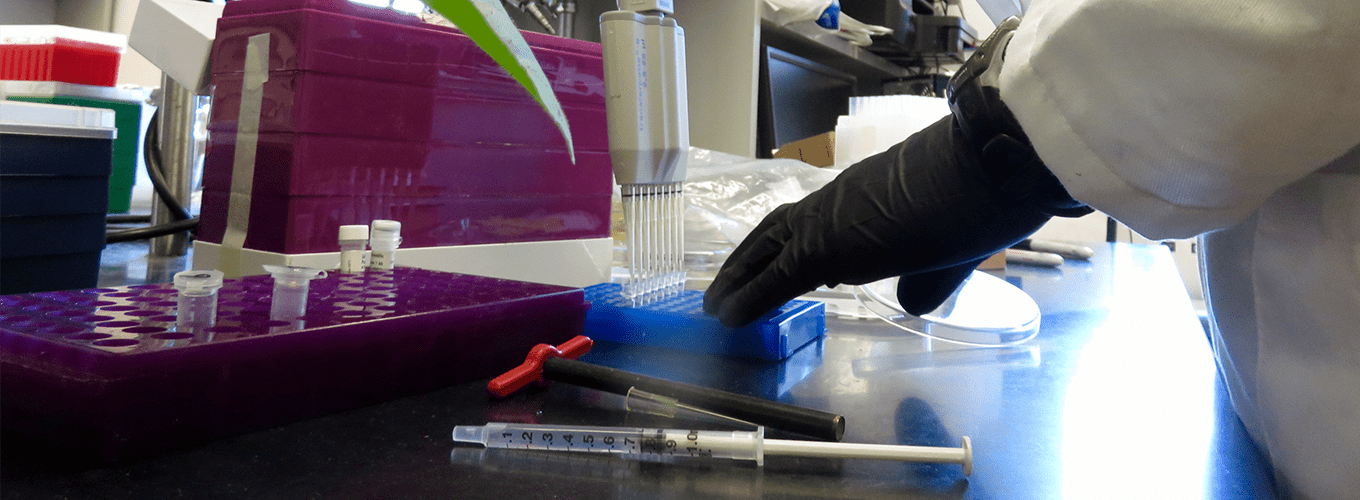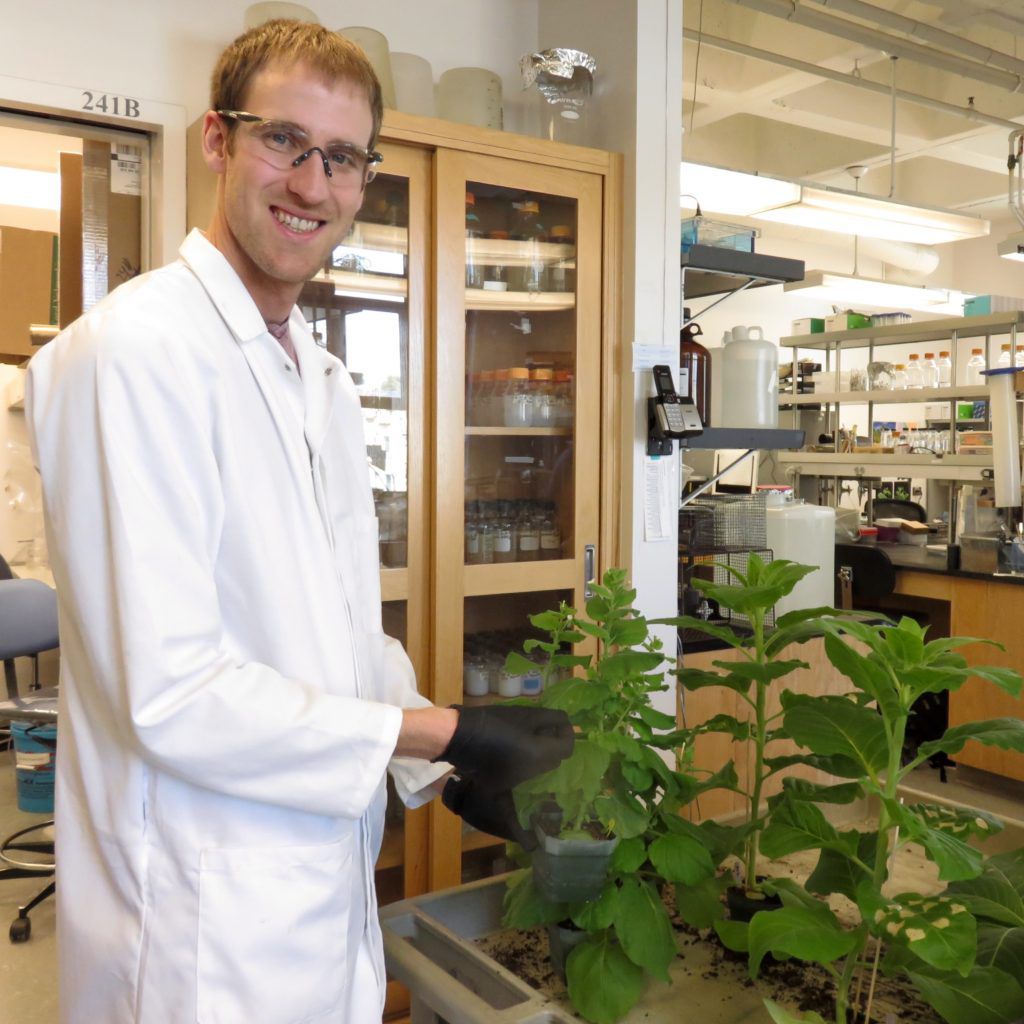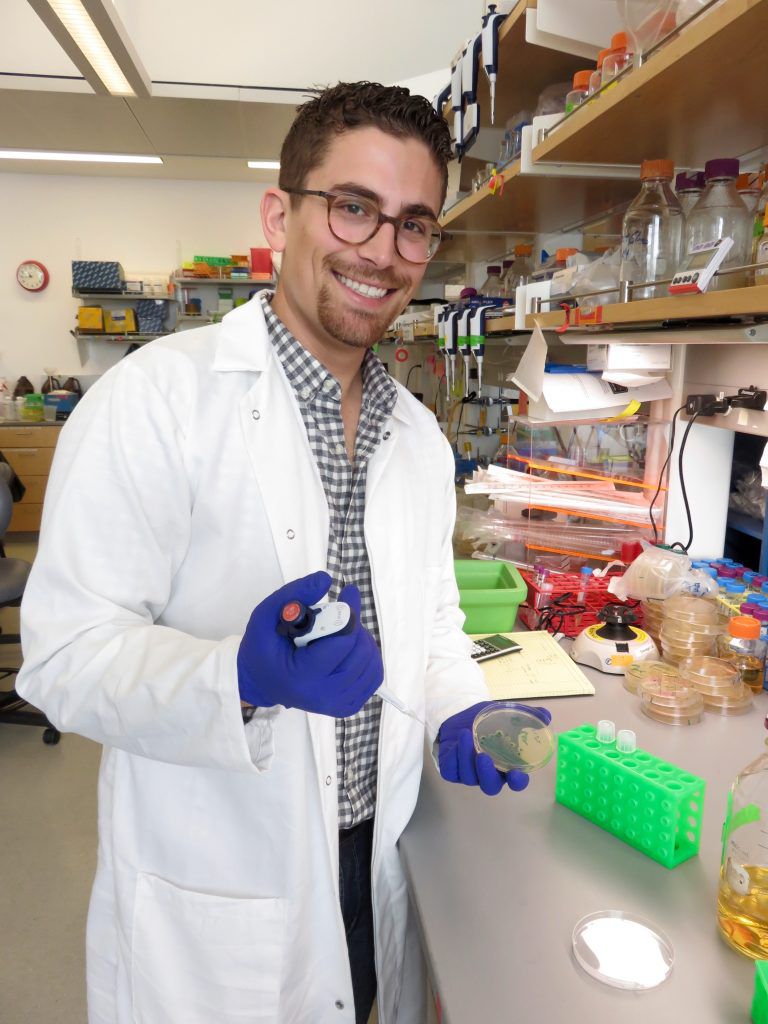
New Entrepreneurial Fellows: Business-Minded Scientists with Big Ideas
The IGI has awarded its first two Entrepreneurial Fellowships to Alex Schultink and Benjamin Oakes. This unparalleled new program catalyzes the translation and commercialization of transformative scientific products by supporting critical foundational research and professional networking for two years. Without time to mature, many great ideas will never make it out of the laboratory. The Entrepreneurial Fellows Program (EFP) will smooth the transition from an innovative idea to a more fully realized technology capable of gaining commercial traction in the biotech economy.
A new paradigm for fostering business-minded scientists with groundbreaking ideas
“I’ve seen brilliant ideas that fizzle out because startup companies just can’t break into the competitive biotechnology scene,” laments IGI Executive Director Jennifer Doudna. “With more time to develop their ideas and technology, our fellows will have the head start needed to earn the confidence of investors.”
This one-of-a-kind program reflects the IGI’s fresh approach to driving discovery and fostering independence in early-career scientists. In addition to funding for their research, the EFP awardees will receive business training and mentorship that few scientists can access. Through interactions with UC Berkeley’s Haas School of Business, QB3, and other organizations, the fellows will receive advising tailored to their needs. This unique fusion of scientific and entrepreneurial education is a rare opportunity amongst researchers looking to make a real impact by commercializing their ideas.
“Programs like this simply don’t exist anywhere else,” says Doudna. “The IGI thrives upon the bold and optimistic spirit of UC Berkeley and UC San Francisco, reinventing the way research can impact society through special initiatives like this. Our fellows will have the privilege of collaborating with an innovative community of scientific leaders and tapping into the resources at two of the most influential universities in the world.”
The EFP fellows were selected for their impressive scientific track records and tremendous potential for future success. They have envisioned cutting-edge tools that will maximize the potential of genome editing in key areas.
Robust crops to withstand disease and protect the environment
Dr. Alex Schultink has devised a method to rapidly identify and utilize disease resistance genes in plants. Many plant pathogens are currently controlled by the application of fungicides and other chemicals, but using naturally-occurring disease resistance traits in the plant can reduce or eliminate this need. “I’m very excited to be part of the IGI’s new agricultural biotechnology initiative,” says Schultink. “Disease resistant plants will provide a tangible and powerful example of the capabilities of genome editing by improving both productivity and the environmental sustainability of agriculture.”

Infectious disease threatens food crops around the world. From fungal infections to newly emerging viruses, plant pathogens cause billions of dollars of losses in global agricultural productivity despite the billions spent on control measures. Crop losses from disease are most devastating for the livelihood of smallholder and subsistence farmers, particularly those in the developing world. There is an acute need to develop a system for quickly finding and deploying disease resistance genes into crops through genetic engineering.
Brian Staskawicz, Scientific Director of the IGI’s agricultural research program and Professor of Plant & Microbial Biology at UC Berkeley, emphasizes the sobering nature of the project’s potential impact. “Outbreaks of contagious plant diseases are a danger to food security and nutrition worldwide. Cassava brown streak virus alone threatens the staple food of nearly half a billion people. Finding new methods to confer disease resistance will be crucial to safeguard the global food supply and to reduce reliance on chemical pesticides.” After earning his PhD in Plant Biology at Berkeley and studying plant pathogen resistance as a post-doctoral researcher in the Staskawicz lab, Schultink is well suited to carry out this ambitious project. He will start later this month.
Advanced genome editing requires DNA cutting and pasting

Benjamin Oakes hopes to solve a vital issue facing genetic engineering today: our inability to precisely change the genetic code. While CRISPR has revolutionized biomedical science by enabling rapid alteration of the genome, the inability to efficiently “paste” in genetic information severely restricts the scope of gene editing. His goal is to develop systems that enable effective gene replacement, a necessity for both the medical and commercial applications of gene editing technologies. “I aim to create tools that will drive a new era of genome editing, enabling doctors to repair genetic mutations as simply as surgery is performed today,” says Oakes.
Improving the efficiency of gene replacement is one of the institute’s major technology development goals, explains Jacob Corn, IGI Scientific Director of Biomedicine and Assistant Adjunct Professor of Molecular and Cell Biology at UC Berkeley. “An upgraded system for introducing new genetic material would benefit genome editing research in all areas. This is the sort of cross-cutting technology that could revolutionize everything from disease treatment to engineering plants, livestock, and microbes.”
As a joint graduate student in the Doudna and Savage labs at UC Berkeley Ben has created dozens of novel Cas9 variants and has focused on developing platforms that facilitate the engineering of CRISPR systems. This training will serve as an ideal springboard for his IGI project, which will begin after he graduates with his PhD this May.
“IGI funding and access to UC Berkeley’s premiere entrepreneurial institutions are indispensable to the success of this project,” stresses Oakes. “This support will empower the high-throughput studies necessary to develop simple solutions for cut and paste genetic repair. With the help of the IGI, I hope to advance CRISPR technology beyond what is currently possible and enable the precise correction of genetic errors in previously incurable diseases.”
Media Contact
Megan Hochstrasser: igi-press@berkeley.edu, 510-982-6715
You may also be interested in

IGI Seminar Series: Progress and Challenges in Delivering Cassava with RNAi-mediated Resistance to Cassava Brown Streak Disease to Smallholder Farmers in Africa – It’s Not Just About the Technology

IGI Seminar Series: Empowering Teachers, Transforming Classrooms: Advancing K-12 STEM Education

IGI Seminar Series: Writing DNA with RNA: Genome Engineering by Target-Primed Reverse Transcription

 By
Megan Hochstrasser
By
Megan Hochstrasser